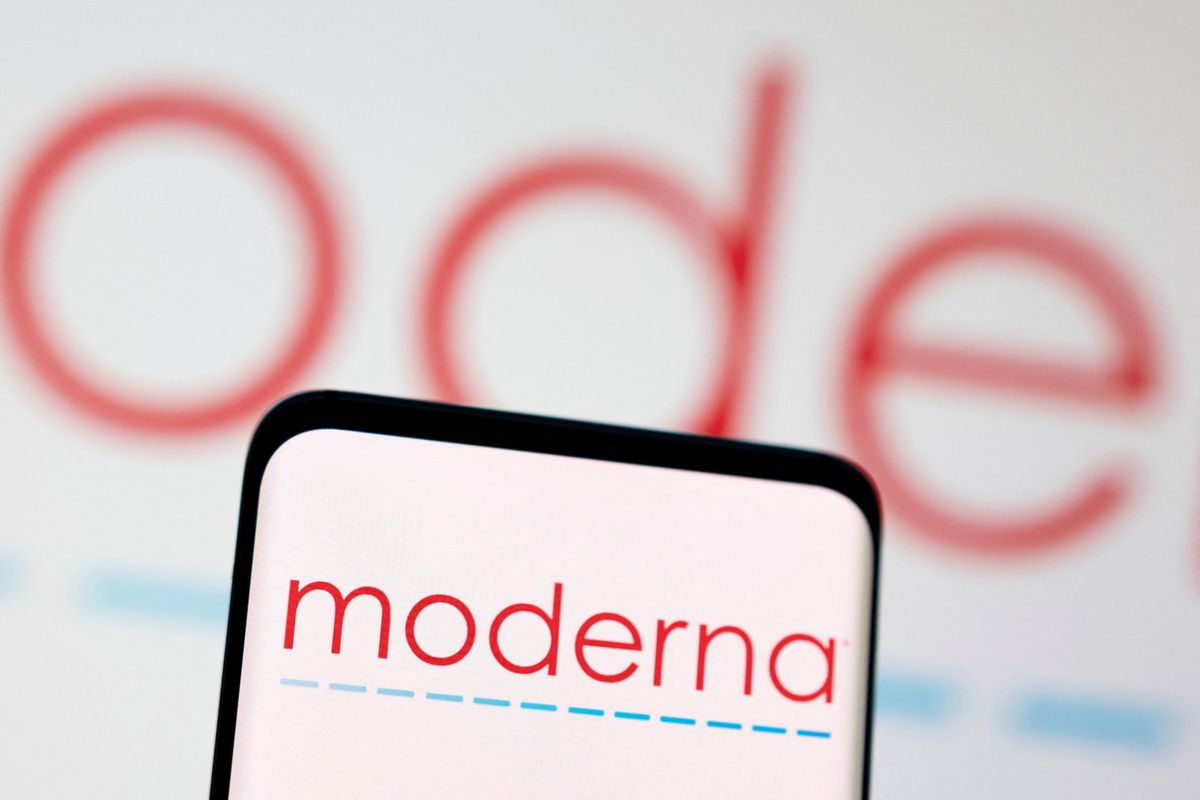Moderna announces a deal to research and develop mRNA medicines in China
An mRNA vaccine is a type of vaccine that uses a copy of a molecule called messenger RNA to produce an immune response that can fight against illness.

A few minutes every morning is all you need.
Stay up to date on the world's Headlines and Human Stories. It's fun, it's factual, it's fluff-free.
The backstory: An mRNA vaccine is a type of vaccine that uses a copy of a molecule called messenger RNA to produce an immune response that can fight against illness. China hasn’t approved any foreign-made vaccines for use within its borders, so instead, it’s relied on domestically-produced vaccines from Sinovac and Sinopharm throughout the height of the pandemic. The thing that makes these jabs different is that they use inactivated virus instead of that copied messenger RNA. Some trials have shown these vaccines to be less effective against COVID, but Chinese officials have repeatedly assured that those domestic vaccines are working just fine.
But in March, China approved its first domestically -produced mRNA COVID jab. This move came as the country started to ease certain COVID-related restrictions, including international travel restrictions.
More recently: Last September, US-based Moderna's Chief Medical Officer showed interest in teaming up with China to supply its mRNA COVID vaccines in the country. But things took a turn in October. According to reports, Moderna wouldn’t hand over the secret recipe of its vaccine to China, which had requested it as a prerequisite to selling the shot within its borders. The pharma company had concerns about safety and the commercial side of things.
The development: Moderna has now signed an agreement to produce mRNA vaccines specifically for the Chinese market. The company is eager to establish itself in the second-largest pharmaceutical market in the world. Reportedly, Moderna's first investment in China could be worth around US$1 billion, but the company hasn't confirmed that yet.
According to a Moderna spokesperson, the company will set up its Chinese headquarters in Shanghai's Minhang District, known for being a hub for global pharmaceutical companies and local biotech firms. It’ll work closely with the local government to conduct clinical trials, approve its products and eventually produce and sell the vaccines in China only, as these vaccines won't be exported anywhere else. The Shanghai municipal government released a statement saying that Moderna's CEO, Stéphane Bancel, had signed the agreement on Wednesday.
Key comments:
"Any medicines produced under this agreement will be exclusively for the Chinese people ... and will not be exported," said a Moderna spokesperson to Reuters in an email.
"We hope to speed up the implementation of Moderna's projects ... and promote more advanced technologies and innovative products to land in Shanghai," said Shanghai's Communist Party Secretary Chen Jining in a statement.
"China's vaccines and medical supplies are overall in adequate supply and the COVID situation is under control," said Chinese foreign ministry spokesperson Mao Ning at a press briefing in January.
"We would certainly be very eager to collaborate with China if they felt that there was a need for a vaccine there," said Moderna Chief Medical Officer Paul Burton at a media briefing for reporters in Asia last year. "Currently, there is no activity going on, but we'd be very open to it."




Comments ()